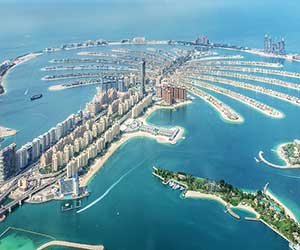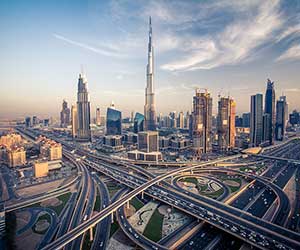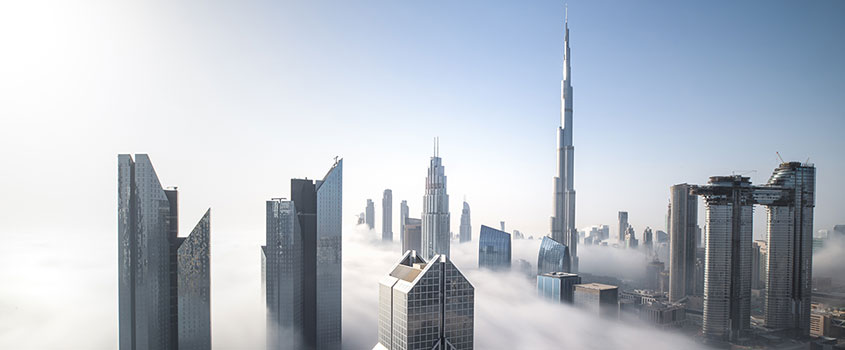Family office in the UAE (Dubai or Abu Dhabi)
With wealth constantly growing in the Middle East and around the world, an increasing number of families decides to establish a single-family office in the United Arab Emirates (UAE). Both the Emirates Dubai and Abu Dhabi have reacted to this trend by launching single-family office licensing regimes.
The UAE, a short introduction
The UAE has, over the last decades, successfully positioned itself as a progressive, innovative, business-friendly and open multi-cultural jurisdiction. Where, in the past, it primarily depended on the proceeds of oil, it now provides an attractive business environment combined with the best the world has to offer in luxury lifestyle.
The UAE is a relatively young jurisdiction. When towards the end of the 1960’s, Great Britain decided to withdraw from the Gulf region, the ruling monarchs of Abu Dhabi and Dubai decided to form a union. On 2 December 1971, a federation of six emirates was formed. It was named the United Arab Emirates (UAE), and H.H. Sheikh Zayed bin Sultan Al Nahyan, ruler of Abu Dhabi, became its first President. The seventh Emirate joined the Federation several months later.
All seven Emirates operate quite autonomously. The Federation is governed by the Federal Supreme Council (FSC) and the Federal National Council (FNC). The Emir of Abu Dhabi is the President of the UAE and the Emir of Dubai is the vice-president and prime minister of the UAE*.
*Source: https://www.government.ae
UAE’s (financial) infrastructure

The judicial system of the Emirates is derived from civil law, where sharia principles will apply for family and succession matters. The official currency of the Emirates is the UAE Dirham (AED) and the official language is Arabic, although English is the main business language spoken.
The UAE is host to three different securities exchanges: Dubai Financial Market, Abu Dhabi Securities Exchange and NASDAQ Dubai. Most trading on these exchanges is related to companies that have a UAE or Middle Eastern origin. Nowadays, a lot of international (private) banks have a presence in the UAE.
In general, it is legally not possible for foreign companies/individuals to establish a business in the UAE without partnering up with an Emirati (at least 51% of the shares should be owned by a UAE partner). Investors originating from one of the Gulf Cooperation Council (GCC) countries are exempted from this rule. There is also an exemption for priority industry sectors under the UAE’s Foreign Direct Investment Law. The establishment of a single-family office does not qualify for this exemption.
In practice, this means that most families will establish their family office in one of the free trade zones in the UAE. In those free trade zones, 100% foreign ownership of a company is allowed. Commercial activities of free zone companies within the UAE jurisdiction itself (outside the free zone) are only possible if an Emirati partner is involved, but this restriction does not apply to services provided by a single-family office to their family.
Most businesses in the UAE, except for oil companies and subsidiaries of foreign banks, are not subject to corporate income tax*. This means that family offices can operate in the UAE without having to pay corporate income tax. As the UAE has introduced VAT of 5% in 2018, this may well be payable on the services provided. Single-family offices that are established in a free zone have the benefit of having access to the UAE’s broad treaty network for the avoidance of double taxation.
The strong economic development of the UAE has triggered increased relocation to the UAE of wealthy families and professionals. As a result, there is a considerable pool of (financial) professionals that family office principals can dip in. Newly hired professionals from abroad can also easily take up residency in Dubai.
Due to several large international airports and a very modern infrastructure, the UAE is easily accessible and easy to get around. Its central position between Asia, Europe and Africa makes it an interesting jurisdiction to consider for a lot of wealthy families from which the family members are spread around the world.
*Source: The International Bureau of Fiscal Documentation. Last updated: April 2020.
UAE’s family office licences and offerings

In response to this development and in order to stimulate it further, the UAE has over the years launched a number of single-family office licences. In several of the UAE’s free trade zones it is now possible to establish a single-family office and obtain a family office licence. These licences allow families to carry out the full spectrum of activities associated with family offices, e.g. day-to-day administrative tasks or more complex tasks such as wealth structuring, asset consolidation and succession planning.
As, in parallel, the UAE positions itself as an attractive destination for international wealthy families to relocate to, the establishment of a family office in the UAE can also be part of your family’s international residency strategy. Below, we discuss the UAE’s family office licences in more detail.
Family office licence
When you decide to establish a dedicated entity for your single-family office in the UAE, a single-family office licence can be obtained in the following three free zones:
- Dubai International Financial Centre (DIFC)
- Dubai Multi Commodities Centre (DMCC)
- Abu Dhabi Global Market (ADGM)
Although the regulations and requirements differ in each of these free zones, they are broadly similar.
The following elements can be distinguished:
Regulation
Every free zone has established specific regulations with respect to establishing and operating a single-family office. You will only be able to start your activity once your application has been approved and you have received your family office licence.
Family definition
There is a definition of “family” in the regulations, mostly bloodline descendants of a common ancestor and spouses. Your family office can only provide services to members of your “family”.
Ownership
There are restrictions to the ownership structure. Your family office entity may be owned by one or more of the members of your family or indirectly via another (wealth planning) structure owned by your family. Ownership/shares of the single-family office can be transferred only between members of the family.
Services
The range of family office services is defined. Your family office is only allowed to provide the range of services to your family that are defined in the applicable regulations of the free zone. So, there are limitations to what your family office may do. Permitted activities can also be provided to the business entities owned by your family and the private wealth structures you hold.
Share capital
In some of the free zones, a minimum amount of share capital is required for the family office entity.
Investable assets
In some of the free zones a minimum amount of free investable assets is required.
Board
There are requirements with respect to the Board of Directors of your family office entity, including the number of directors and the role family members play in it. This excludes professional roles that cannot be held by members of the family, unless they are properly qualified for such role.
Compliance & reporting
On an annual basis, your single-family office needs to file accounts and report to the regulator of the free zone that there have been no material changes to the operations and circumstances of your family office. A single-family office is considered a Designated Non-Financial Business or Profession (DNFBP), and as such, has to have an Anti Money Laundering (AML) framework in place.
Fees
You will need to pay an initial fee for registration and an annual fee to the registrar of the free zone.
Although your family office is based in a free zone, it will be able to assist a family that is residing anywhere in the UAE. In the event of a dispute, family offices established in the DMCC, DIFC or ADGM free zones have access to the dedicated courts of DIFC or ADGM.
Based on your exact family situation, your family objectives and the above criteria, a thorough analysis will need to be made as to which of the single-family office free zones (DIFC, DMCC or ADGM) suits you and your family best. A local lawyer or family office specialist such as Caputo & Partners* can be of assistance with that.
It is also possible to establish a single-family office in a number of other free trade zones (or even onshore in the UAE), but in those free trade zones your family office will not be able to hold a licence. As a result, the range of services your family office can provide to your family members could be rather restricted, especially on the financial advisory and investment side (it needs to be noted that not all single-family offices are actively involved in investment management, some only hold a monitoring and controlling role).
*As permitted by relevant laws and regulations.
Source: DMCC, DIFC, ADGM.
UAE family office structures
In the absolute majority of cases, the single-family office structure of choice in the UAE is a limited liability company. As with all other structures in the UAE’s free zones, these entities are set up rather quickly. Also, similar to almost all other corporate entities in the UAE, your single-family office structure will not be subject to corporate tax.
❝ UAE family office licences are an interesting alternative for global families ❞
Your single-family office structure can hold the family assets directly itself, hold underlying assets, such as business holdings, private equity investments and private wealth vehicles, or only monitor and control independent entities.
The UAE offers a constantly increasing range of interesting structures to hold your family and business assets, such as for example ADGM and DIFC foundations. These foundations can be used by both Muslim and non-Muslim families, living either inside or outside the UAE. You will find more about what you need to consider when setting up a single-family office on our dedicated page.



